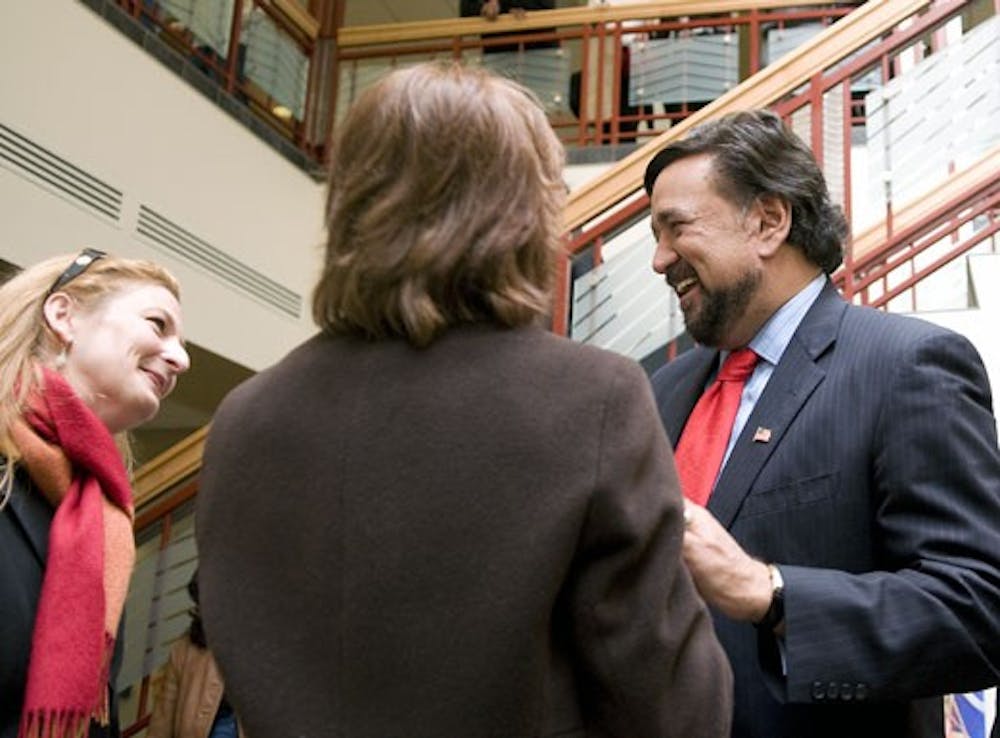Gov. Bill Richardson signed a $180 million bill in the SUB on Monday.
The bill was part of the general obligation bond act that would give $70 million to UNM. About 10 percent of that money would be allotted for a potential dental intern program.
David Harris, executive vice president of administration, said New Mexico residents will vote on the issue in November.
"That bill didn't really appropriate money," he said. "It just authorized the voters to vote when they want to do it."
Harris said that if people vote to create the program, it would take two years to establish and would educate dental students in core courses only.
Though students would have to transfer out of state in order to complete their degree, the program would still be beneficial to New Mexico, Harris said.
Get content from The Daily Lobo delivered to your inbox
"Many New Mexicans don't have access to dental services," he said. "So, it is something very important that (Richardson) put in his health care reform effort."
Richardson also signed House Bill 236, a bill that calls for the creation of Bernalillo County's first off-reservation American Indian health care commission, which would be an independent body set up to investigate health system needs.
Sonny Weahkee, executive director of the Sacred Alliance for Grassroots Equality, said off-reservation health care has been a problem for American Indians.
"When he signed this bill today, it provided a legitimate voice for urban Native Americans and gave them the ability to address their concerns and their needs in regards to health care," he said.
Weahkee said the bill was proactive.
"Almost every major metropolitan area with a large Native American population has a commission like this," he said. "So, it's really great that New Mexico is starting to move in that direction."
State Rep. Mimi Stewart, who joined Gov. Richardson in the SUB, said the issue of American Indian health care is important.
"There are 50,000 Native Americans in Bernalillo County from over 400 tribes or reservations or pueblos with no health care because the Indian Health Services - which is the federal government program - does not pay for your health care after you're off your reservation for 180 days," she said.
Stewart said American Indians needed to have access to health care outside of the reservation.
"It's a huge issue," she said. "The federal government has not funded the Indian Health Services adequately for a number of years."






